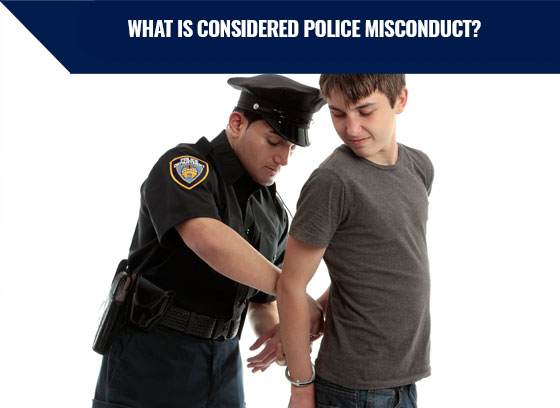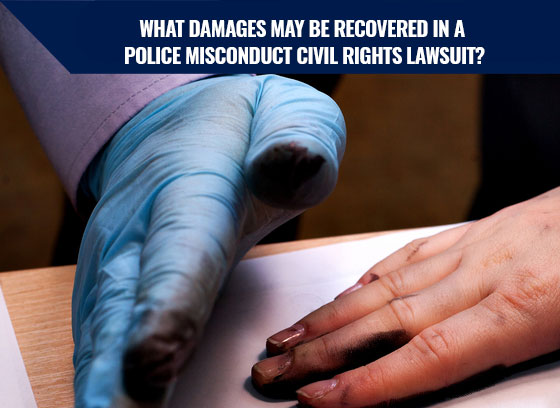San Diego Police Misconduct, Brutality, and Excessive Force Lawyers
McKenzie Scott PC continues to fight for transparency in law-enforcement records and accountability to the communities they serve. In 2019, a USA TODAY report was part of a national effort to publish disciplinary records for police officers. Together with the nonprofit Invisible Institute in Chicago, reporters from USA TODAY spent over a year compiling “the biggest collection of police misconduct records” then available anywhere.
The findings were staggering.
Via records obtained from thousands of state agencies, prosecutors, police departments, and sheriffs dating back to the 1960s, USA TODAY and the Invisible Institute exposed hundreds of thousands of previously unreported incidents. The newspaper also looked at more than 110,000 internal affairs investigations by hundreds of individual police departments. In total, more than 30,000 officers were reportedly decertified by 44 state oversight agencies.
The investigation also confirmed the following police misconduct statistics:
- The records reveal tens of thousands of cases of serious misconduct and abuse.
- Most misconduct involves only routine infractions alleged against the victims.
- The infractions include:
- 22,924 investigations of officers using excessive force
- 3,145 allegations of rape, child molestation, and other sexual misconduct
- 2,307 cases of domestic violence by officers
- The records document at least 2,227 instances of perjury, tampering with evidence or witnesses, or falsifying reports.
- There were 418 reports of officers obstructing investigations, most often when they or someone they knew were targets.
- Less than 10% of officers in most police forces get investigated for misconduct (yet some officers are consistently under investigation).
- Nearly 2,500 police officers have been investigated on 10 or more charges.
- 20 police officers identified faced 100 or more allegations (yet kept their badge for years).

While the USA TODAY investigative report offered an important perspective on police misconduct at the national level, it’s important to note that the list was actually incomplete, and therefore an underestimate of how often police misconduct actually occurs. As the newspaper noted, there was an absence of records from states such as California, which has the largest number of law enforcement officers in the U.S.A.
In terms of the scope of police misconduct from a financial perspective, a March 2022 Washington Post report estimates that more than $1.5 billion has been spent to settle claims of wrongdoing on the part of thousands of law enforcement officials (many of whom are repeatedly accused of violations).
If you’ve been victimized by police misconduct, conduct McKenzie Scott at 619-794-0451 to discuss your case confidentially with a police misconduct lawyer.
 Police misconduct can take many forms. Some of the more common examples of police misconduct which may warrant a civil lawsuit include:
Police misconduct can take many forms. Some of the more common examples of police misconduct which may warrant a civil lawsuit include:
- Excessive force
- Brutality
- False arrest and illegal detention
- Unjustified shootings or deadly force
- Misuse of police dogs
- Wrongful convictions
- Racial profiling
- Illegal searches and seizures
- Jail custody abuse and neglect
- Phony charges (e.g. resisting arrest or assaulting a police officer to cover up excessive force)
Police misconduct and civil rights lawsuits are filed in an effort to recover financial compensation for the victim as well as to effect societal change.
 Depending on the unique circumstances of your case, various economic, non-economic, and punitive damages may be pursued.
Some common examples of damages that may be recoverable in a civil rights lawsuit include:
Police Misconduct Economic Damages:
Depending on the unique circumstances of your case, various economic, non-economic, and punitive damages may be pursued.
Some common examples of damages that may be recoverable in a civil rights lawsuit include:
Police Misconduct Economic Damages:
- Medical expenses (past and future)
- Hospital/emergency department treatment
- Lost Wages
- Lost Earning Capacity
- Pain and suffering
- Emotional trauma
- Psychological harm
- Reduced quality of life
For a civil rights violation like police misconduct of brutality, the California statute of limitations (deadline) for filing a tort claim is often only six months from the date of the incident This means that if your civil rights have been violated by a state or local law enforcement entity, you typically have only six months from the date of the violation occurring to file a claim and preserve the right to file a civil lawsuit for damages.
Accordingly, the McKenzie Scott team of police misconduct lawyers encourages all victims to contact us as soon as possible following a violation to ensure your opportunity at justice is preserved and your claim is not barred by the statute of limitations.
For federal civil rights claims, the statute of limitations may be longer – sometimes up to two years from the date of an incident. But the Federal Tort Claims Act also has tort-claim requirements that can affect statutes of limitations. The interplay between tort claims, statutes of limitations, and individual versus government defendants is complex and fact-specific. They also depend on the circumstances of your individual civil rights violation and particular causes of action. Due to the varying nature of federal civil rights claim filing deadlines, the team of attorneys at McKenzie Scott strongly encourages you to reach out for a case evaluation as soon as possible following an incident.
The team of experienced, dedicated, and proven police misconduct, brutality, and excessive force attorneys at McKenzie Scott have been fighting for decades to protect the little guy. Our results speak for themselves.
Contact us today at 619-794-0451 for a free, confidential, and no obligation consultation. We represent victims throughout California as well as across the nation.
Client Review
"Tim and his team are an amazing group of people who dedicate themselves in providing excellent services. Not only do they go above and beyond for their clients, they become emotionally and personally invested which really shows throughout the entire process. Tim is an excellent litigator and I highly recommend him and his team."
Luynh Pham

FREE CASE EVALUATION
The information provided on this website is for informational purposes only; it is not intended to create an attorney-client relationship with those accessing the website and the firm is not intending to provide any individuals with legal advice as to any particular matter. Additionally, prior results achieved by the firm do not represent a guarantee or prediction of similar results in any other cases. The facts of each case are unique. This website may contain attorney advertising.
@ Copyright 2025 McKenzie Scott Civil Rights & Criminal Defense Lawyers. All Rights Reserved | Sitemap
